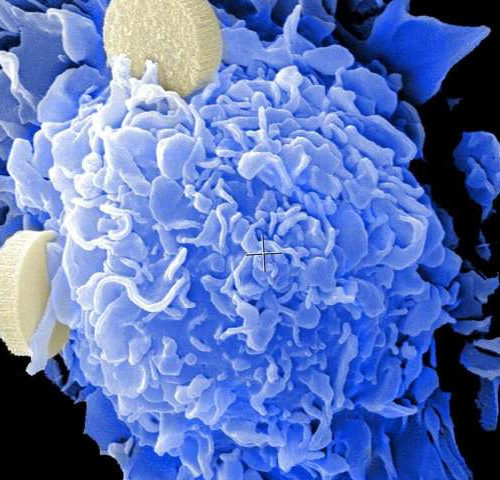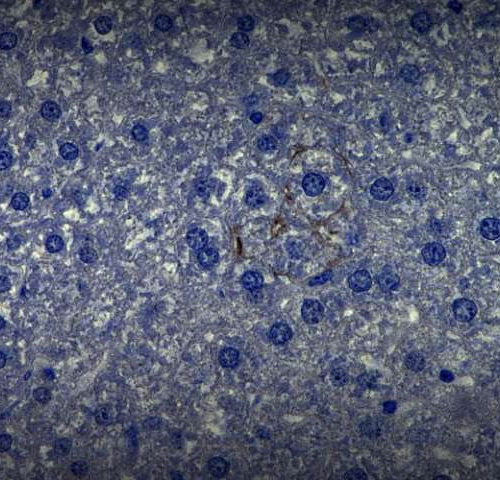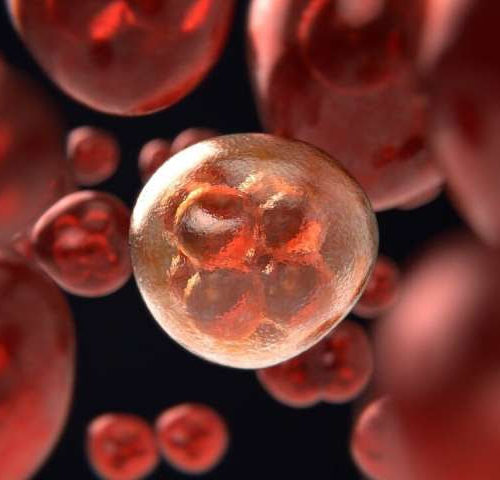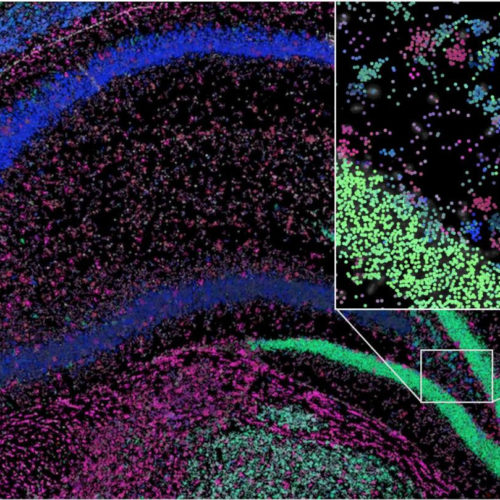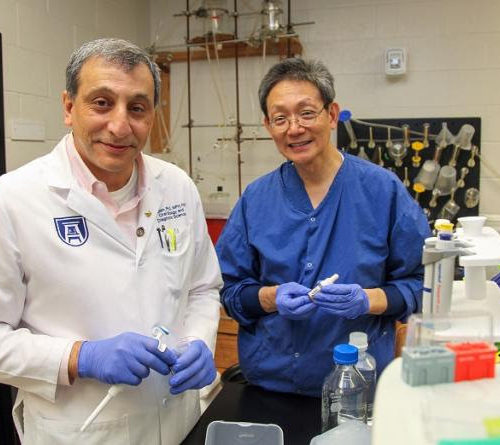by Johannes Angerer, Medical University of Vienna Interval cancer is the term used for colorectal cancer that develops after a screening colonoscopy but before the scheduled follow-up colonoscopy. These cancers are probably more frequent than assumed, especially in high-risk patients who have been found to have an initially benign but advanced adenoma. In a study now...
Study helps explain declines in death rates from COVID-19
NYU LANGONE HEALTH / NYU SCHOOL OF MEDICINE Fewer New Yorkers are dying from the coronavirus than health experts had anticipated, a new study shows. Regional death rates have dropped from the highs seen at the start of the outbreak, partially due to a shift in the population contracting the disease toward those who are...
Fungal eye infection blinds over half a million in one eye a year
Between 1 and 1.4 million fungal eye infections occur in the developing world per year, leaving over 600,000 people blind in one eye, find researchers from Manchester, London and Nairobi. Lead researcher Lottie Brown from the University of Manchester today publishes the first estimation of global fungal keratitis figures in Lancet Infectious Diseases. Infection of...
Indian and Pakistani women diagnosed with more aggressive breast cancer at younger age
RUTGERS UNIVERSITY Indian and Pakistani women are diagnosed with breast cancer, including more aggressive forms of the disease, at a younger age, according to Rutgers researchers. South Asians are the fastest-growing major ethnic group in the United States with breast cancer rates increasing within the population, but little is known about the disease in this...
Study shows main cell type in the liver has key role in defending against some viruses
by The Scripps Research Institute Through experiments involving modified versions of liver cells known as “hepatocytes” (pictured), scientists showed that these cells likely absorb viruses in the body to slow their spread. Scientists at Scripps Research have uncovered an important disease-fighting role for cells called hepatocytes, which constitute most of the liver. The discovery could potentially be harnessed to develop...
Neo-adjuvant immunotherapy combination effective for non-metastatic bladder cancer
by Netherlands Cancer Institute In the scientific journal Nature Medicine, researchers in the Netherlands report that neoadjuvant immunotherapy using a combination of two drugs (nivolumab and ipilimumab) is a feasible treatment for bladder cancer without harming the scheduled resection, and shows promising results. With this publication, bladder cancer is officially the third cancer type—following melanoma and colorectal cancer—for which researchers at the Netherlands Cancer Institute...
Keeping weight off is up to your brain, not just willpower, researchers discover
by American Associates, Ben-Gurion University of the Negev What if an MRI scan could determine whether a weight loss program was likely to be effective? Ben-Gurion University of the Negev (BGU) researchers have discovered a neural subnetwork of connected regions between the brain and gastric basal electric frequency that correlates with future weight loss based on connectivity patterns....
AI methods of analyzing social networks find new cell types in tissue
UPPSALA UNIVERSITY IMAGE: MESSENGER RNA IN A SMALL PART OF THE HIPPOCAMPUS FROM A MOUSE BRAIN. THE COLOURS REPRESENT DIFFERENT “SOCIAL NETWORKS “. In situ sequencing enables gene activity inside body tissues to be depicted in microscope images. To facilitate interpretation of the vast quantities of information generated, Uppsala University researchers have now developed an entirely new...
CBD helps reduce lung damage from COVID by increasing levels of protective peptide
MEDICAL COLLEGE OF GEORGIA AT AUGUSTA UNIVERSITY IMAGE: DR. BABAK BABAN, DCG IMMUNOLOGIST AND ASSOCIATE DEAN FOR RESEARCH AND DR. JACK YU, PHYSICIAN SCIENTIST AND CHIEF OF PEDIATRIC PLASTIC SURGERY AT MCG One way CBD appears to reduce the “cytokine storm” that damages the lungs and kills many patients with COVID-19 is by enabling an...
New model of human brain ‘conversations’ could inform research on brain disease, cognition
INDIANA UNIVERSITY IMAGE: RICHARD BETZEL A team of Indiana University neuroscientists has built a new model of human brain networks that sheds light on how the brain functions. The model offers a new tool for exploring individual differences in brain networks, which is critical to classifications of brain disorders and disease, as well as for...

